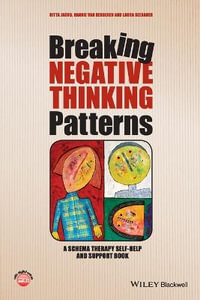Genocide results from the culmination of conflicts over identity. A group of people that feels threatened by extinction resorts to genocide as a pathologically defensive reaction. This poses a security dilemma that can only be broken by quelling the feelings of threat and fear that prompt mass violence. In order to prevent genocide, it is essential to understand the internal dynamics of identity conflict. It is also important to intervene at the early stages of identity conflict; the parties involved require external help to ease tensions.
In this volume, noted thinkers and practitioners of conflict management, who hail from ten different countries, present ideas on how to prevent identity issues from causing fear and escalating into genocide. They focus on measures for handling the internal dynamics of parties facing identity conflicts, as well as considerations for arranging external assistance. Contributors address the problem of outbidders, actors whose non-conciliatory attitudes put them in positions of leadership in their identity groups. Since political extremism and violence can signal resolve and commitment to a group cause, moderates give way to hardliners. Spoilers, who believe that peace undermines their interests and power, also play a key role in the dynamics of conflicts. Careful attention is necessary to select appropriate third parties who can pull conflicting parties off the course of conflict. The authors discuss the concepts and practices involved in changing structures and attitudes to ease tensions,
as well as the measures interveners must take to work in the midst of conflicting groups.
Industry Reviews
"This well-edited collection is a sophisticated, timely, state-of-the-art analysis of a notoriously difficult set of conflict management issues. Both scholars and practitioners will find it seriously useful in helping identify which of the legion of identity-difference situations around the world have the potential to turn murderous, and what kinds of diplomatic intervention are most likely to be successful in preventing and reacting to such catastrophes." --
Gareth Evans, Co-Chair, International Commission on Intervention and State Sovereignty; President Emeritus, International Crisis Group; Former Foreign Minister of Australia; and author of The
Responsibility to Protect: Ending Mass Atrocity Crimes Once and for All
"The positive notion of identity has far too often been exploited by forces aiming to aggravate tensions between groups of different religions or ethnic backgrounds. In my own mediation work in Africa and the Middle East, I have often noted how the dimension of identity complicates and prolongs the search for solutions. This book contains a number of sharp and valuable analyses and ideas on how to prevent identity issues from creating fear and escalating into
genocide. It is of high relevance to both national and international actors involved in or affected by identity challenges." -- Jan Eliasson, Former President of the United Nations General Assembly and
Former Minister for Foreign Affairs in Sweden
"William Zartman is one of the greatest scholars of conflict resolution and violence prevention. This book, with excellent collaboration, is the culmination of his superb scholarship on this crucial topic and will be valuable on a worldwide basis." -- David A. Hamburg, President Emeritus, Carnegie Corporation of New York; DeWitt Wallace Distinguished Scholar, Weill Cornell Medical College; and Visiting Scholar, American Association for the Advancement of
Science
"In this theoretically rigorous edited volume, prominent scholars of conflict resolution and violence prevention offer insight as to how and under what conditions negotiation can be used as an effective tool for combating violent identity conflicts in different sociocultural settings. This erudite book is a valuable resource for students and scholars of conflict management and resolution. Summing Up: Highly recommended." -- N. Entessar, University of South
Alabama, CHOICE
























